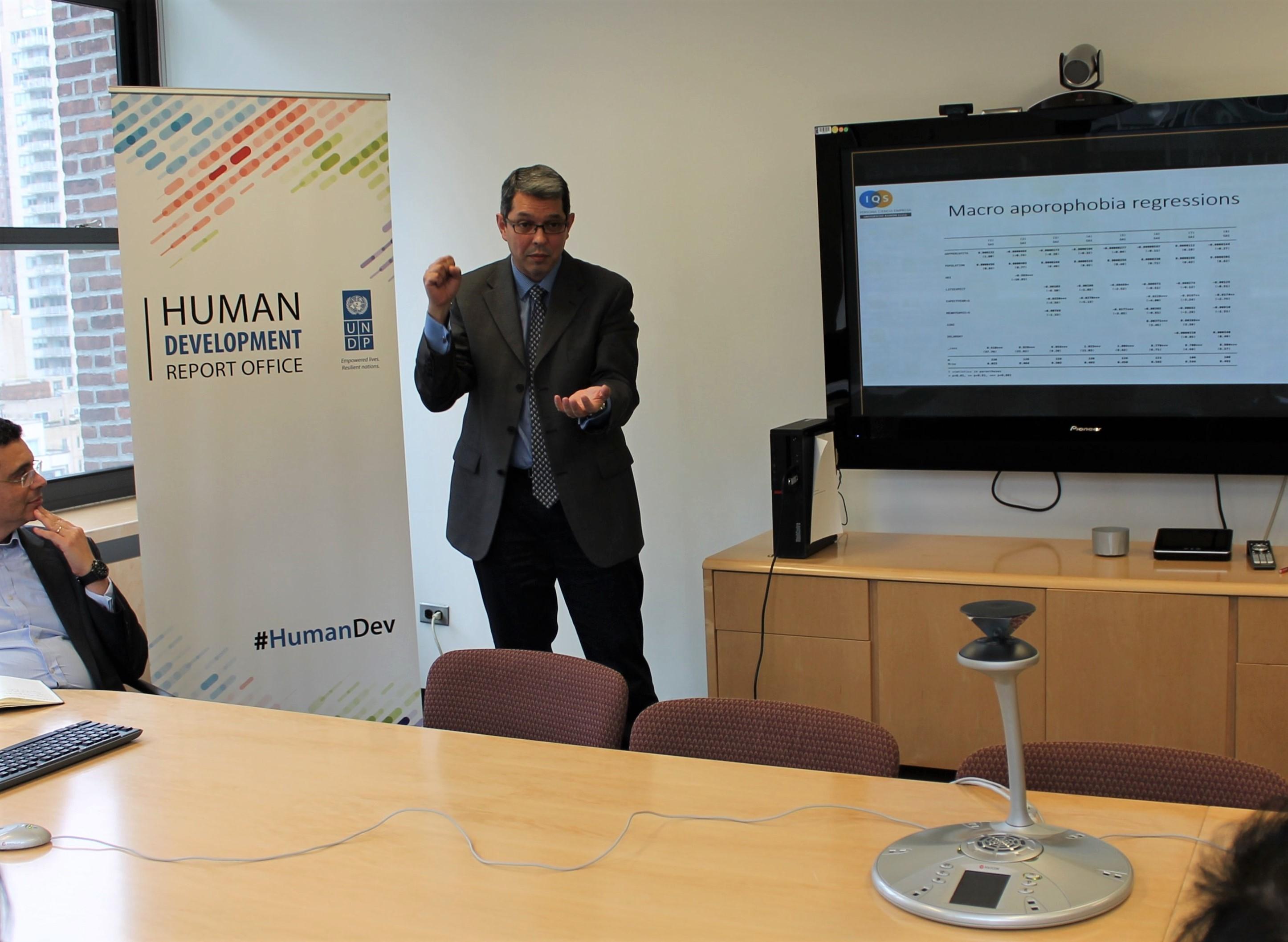
On 31 October Dr Flavio Comim gave a presentation on 'The Multi-Dimension of Aporophobia' at the Human Development Report Seminar of the United Nation Development Programme in New York.
Aporophobia is a neologism formulated by the Spanish philosopher Adela Cortina that means 'rejection of the poor'. It is a global phenomenon, related to global poverty, international migration, the refugee crisis in Europe and North America and to the challenges faced by global inequality. It is a problem that has been ignored by human development and development policies. The presentation offers an analytical framework for Cortina's theory. It explores the possibilities of translating this framework into metrics for economic, social and legal policy-making. Moreover, it suggests that aporophobia is a necessary concept to understand the links between poverty and inequality phenomena. It employs some social choice measurement techniques, based on Amartya Sen's Capability Approach (such as partial and meta-rankings) as well as some psychometric tools, such as the ones introduced by Panteleimon Ekkekakis. It examines the use of secondary data (based on UNDP datasets
and the European Social Survey) as a source for building aporophobia indicators. The talk is based on a paper written with Dr Mihály Borsi and Dr Octasiano Valério from the University Ramon Llull.
Flavio Comim is a human development economist. He is Associate Professor of Ethics and Economics at the IQS School of Management, University Ramon Llull in Barcelona, Affiliated Lecturer at the Department of Land Economy at the University of Cambridge, and a Research Associate at the VHI.


